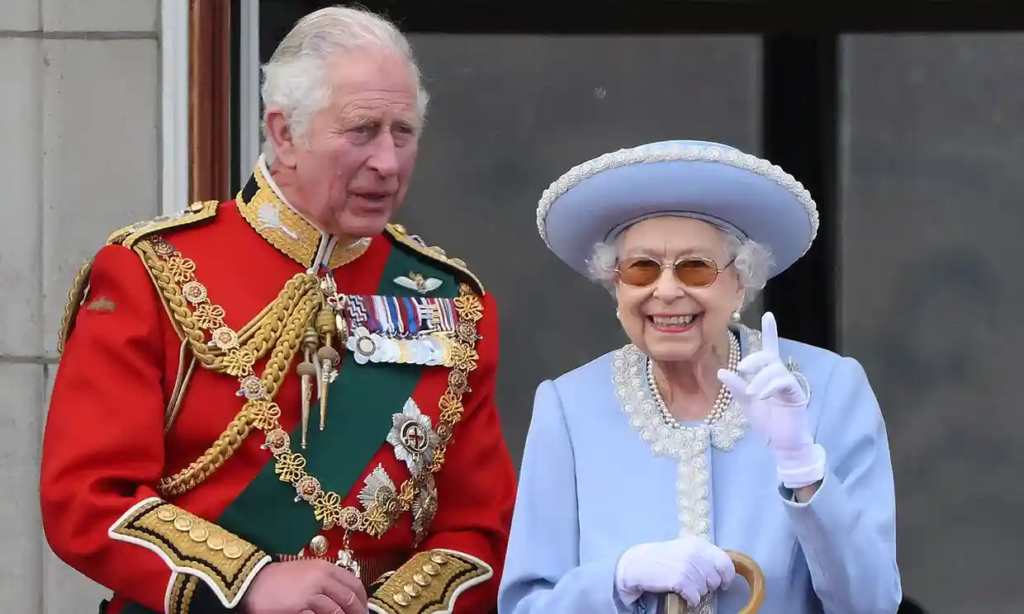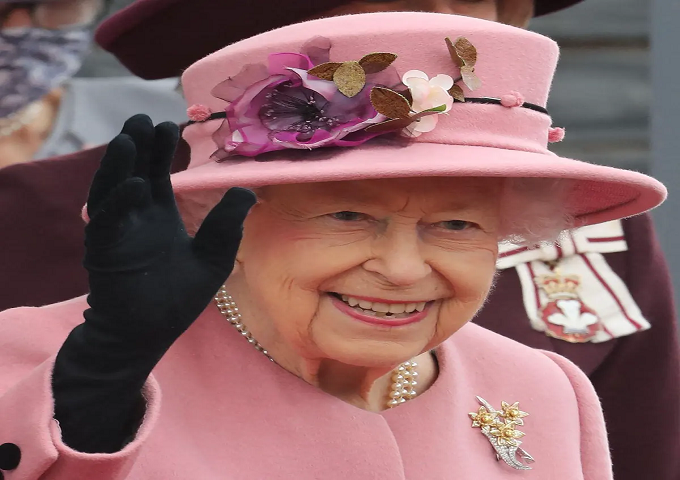
As the Sex Pistols said back in 1977, the year of the silver jubilee, never mind the bollocks. It really doesn’t matter what it’s for – just seize the moment: an extra bank holiday for this miserable country, which has the fewest national holidays in Europe and the second fewest in the world. England and Wales have just eight, Northern Ireland 10, Scotland 11; by contrast Europe averages 12.8, and Japan has 17.
Enjoy a release from England’s grindstone working culture, whipped on by cabinet luminaries Liz Truss, Priti Patel, Kwasi Kwarteng and Dominic Raab, who in 2012 damned British workers as “the worst idlers in the world” in their obnoxious book Britannia Unchained.
So knees up, and let everyone roister in their own way, as I shall with family and friends. But expect relatively few streets bedecked with bunting and flags: only 14% of people are planning royal celebrations. Camera crews hunt for examples of extreme royalism bursting out all over, yet 54% of those asked told pollsters they were not interested at all. The reality may, of course, prove different: celebrations are infectious, and I suspect plenty of us good republicans will be watching these pageants, troopings, concerts and spectaculars with a drink or two.
As we celebrate this one long life, there is no doubting public admiration and affection for the Queen herself. She remains a fixed emblem of pomp, even as national dignity is trashed by the present prime minister. She has steered her wayward family “firm” skilfully through 70 years of change and tumult. Like it or not, reigns are milestones in all our lives. This will be one of her last hurrahs, and I defy anyone not to measure out their personal and our national history in some hazy notion of an Elizabethan age.
Republic, the anti-monarchist pressure group, has been sending poster vans around the country emblazoned with Make Elizabeth the Last. And that’s the point: not revolution but an end to the monarchy when the Queen dies. That is the time to think deeply about what monarchy does to us and to the British constitution – before the Vivat rex! rings out to seal the country’s monarchical fate, allowing no time for reflection.
Whatever our vision of the future, there is no doubting public admiration and affection for the Queen herself
Ahead, we look destined for three old or ageing kings: Charles, William and George, all likely to accede in their 60s or 70s in this long-lived line. Is there never to be a pause for thought? Boris Johnson has shown how easily a rogue prime minister abuses an unwritten constitution, with an unelected and symbolic head of state obedient only to that prime minister. Elected presidents, as in Ireland’s distinguished choices, have a formal role as guarantors of constitutions. A Labour party constantly challenged to prove its patriotism will never turn republican until the public gets there first. We need a constitutional convention to reform our political system’s deformities, above all electoral, but also its warping by the monarchy.
Today, enjoy the pomp and spectacle, but remember the infantilising influence on Britain’s political psyche of babies born to rule. “Modernise” it as much as her heir may try, the whole fandango of inheritance helps keep this country unequal and socially immobile, weighed down by the power of birth privilege.
Any republicans in festive mood will find it hard to dodge what Johnny Rotten called the bollocks. Just when you think no more unctuous religio-royalism can flow from the mouths of serious broadcasters high on royal miasma, another stream of brainless adoration pours out. Much as I admire the BBC, and will defend it to the last against culture war bombardments from Boris Johnson and Nadine Dorries, I fear this jubilee coverage smacks of a panicked loss of the BBC’s sense of itself. All that we ask for is a modicum of detached reporting about this choreographed promotion: monarchy is not outside politics.
Graham Smith of Republic has been monitoring coverage. “The BBC website has more than 200 stories about the jubilee, and only one mentions republican opposition,” he says. Republicans are a small but significant minority, with 27% now in favour of abolishing the monarchy. Smith describes “a slow puncture” of support for the crown, which now stands at 60% – quite a drop from 70-75% a decade ago. The young expect it to be gone within 25 years.
Beyond the statistics are the personal recollections. I watched the Queen’s coronation in Pall Mall in 1953, yearning for a toy golden coach. In 1977, I panicked at losing my small daughter in the dark at a village jubilee bonfire. At Charles and Diana’s wedding fireworks, we got scarily crushed in the Hyde Park crowds. On Friday I’ll be with family at the ancient, once-every-20-years Pole Fair in Corby, Northamptonshire.
National celebrations make for shared memories. But don’t let the culture warriors turn monarchy into a test of patriotism. Passionate patriotism comes from a thousand different reasons to love the place where you belong. Britain’s proudest achievements – from Shakespeare to the NHS, the BBC to the Beatles, Edward Jenner’s vaccinations to the steam engine, the television and Tim Berners-Lee’s world wide web – have nothing to do with heredity. National history will always be fluidly reinterpreted through changing prisms. Each revision is invariably castigated as “woke”, but that history is dead if it is set in concrete memorials, as the culture warriors wish it to be.
Everyone will make their own jubilee kaleidoscope of the Elizabethan era, according to age, temperament and politics, because this Queen stretches back to her wartime uniform and We’ll Meet Again. There she is, through every national rising up and sliding down, that permanent background image to all the best and worst memories of what Britain has done to itself in 70 years.

By Polly Toynbee is a Guardian columnist




 World Opinion | Alternative Média زوايا ميادين | صوت من لا صوت له Débats De Société, Questions, Opinions et Tribunes.. La Voix Des Sans-Voix | Alternative Média
World Opinion | Alternative Média زوايا ميادين | صوت من لا صوت له Débats De Société, Questions, Opinions et Tribunes.. La Voix Des Sans-Voix | Alternative Média




